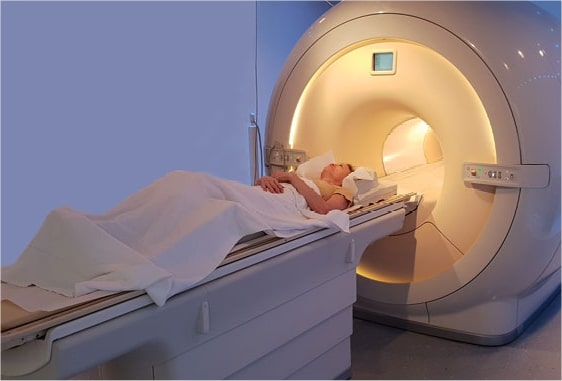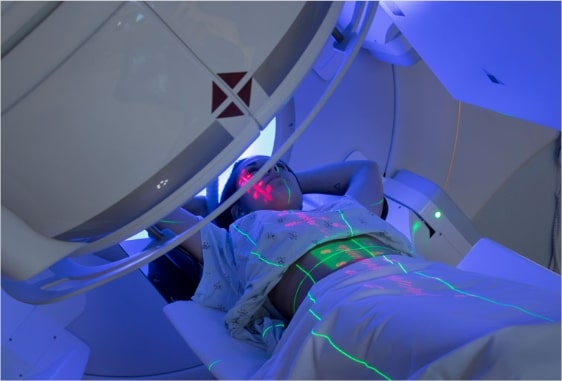
Neuro-Oncology
The Center for Neurosciences is the home of Southern Arizona’s only Neuro-Oncologist. Neuro-Oncology is the multidisciplinary specialty focused on the diagnosis and treatment of tumors of the brain and spinal cord. Our Neuro-Oncologist works closely with the full range of subspecialists involved in treating these tumors including neurosurgical oncologists, radiation oncologists, neuropathologists and neuroradiologists.
Tumors affecting the nervous system can arise from the brain or spinal cord (a primary tumor) or can spread to the brain or spinal cord from a tumor that formed in another organ, such as the lung, kidney or thyroid (a metastatic tumor). Brain tumors are much more common than spinal tumors. While some brain tumors may not be cancerous (also called benign), they can still be very dangerous because of their effect on surrounding tissue.
Some of the common symptoms of brain tumors are:
- Headaches that become progressively more frequent and eventually constant
- Changes in personality
- Dizziness or loss of balance
- Seizures
If a tumor is suspected, our experts will order either an MRI (magnetic resonance imaging) or a CT (computed tomography) scan to learn if a tumor is present and to determine its size and position.
Almost all tumors of the nervous system will need to be removed surgically by one of our neurosurgeons, but, depending on the type of tumor, a patient may also require chemotherapy or radiation therapy.
Our multidisciplinary Brain Tumor Center team holds weekly meetings devoted entirely to reviewing the progress of patients with tumors to ensure each patient has the most innovative and effective treatment plan.
Brain Tumor Center
The Center for Neurosciences Brain Tumor Center focuses on the individualized treatment of tumors of the brain and spinal cord. Our use of medical therapy, in conjunction with advanced surgical and radiation techniques, has made our Brain Tumor Center a regional center of excellence.
The successful diagnosis and management of tumors depends on the collaborative effort of several different specialties including neurosurgery, radiation oncology, neuro-oncology, neuropathology, and neuroradiology. Our interdisciplinary team conducts weekly meetings devoted entirely to reviewing the progress of patients with tumors. This ensures each patient has the most innovative and effective treatment plan. We then work with each patient to help them fully understand the risks and benefits of the recommended treatment.
External Imaging Review
Our Brain Tumor Center offers External Imaging Review for anyone diagnosed with a brain or spinal cord tumor. This External Imaging Review is intended to provide an additional opinion regarding the treatment of tumors.
Clinical Trials
Our team of highly trained specialists is dedicated to finding cures and is committed to the compassionate care of patients with brain and spinal cord tumors. We work with our patients to ensure they have access to the most promising experimental treatments.

Radiation Oncology
Radiation Oncology is a specialty that uses a focused radiation beam to treat a variety of medical conditions. Radiation can be given either alone or in combination with surgery and/or chemotherapy. Our Radiation Oncologists work closely with oncologists and surgeons, such as our Neuro-Oncologist and Neurosurgeons, as part of a multi-disciplinary team to plan the best course of treatment for each patient.
Radiation Therapy Treatment Options
Radiation is a high energy x-ray beam that can be precisely targeted at any location in the body. The patient cannot see, smell, taste, hear or feel the radiation treatment. The radiation beam is shaped so it conforms to the shape of the target and blocks out normal tissue. In order to shape the radiation beam, a 3-dimensional reconstruction of the target area is created on the computer using a CT scan of the patient, and sometimes an MRI scan.
Prior to starting radiation treatment, the patient undergoes a “simulation”. During the simulation, the CT scan is taken in the same position that the patient will be treated. The radiation oncologist maps out target areas on the scans, as well as maps out nearby normal organs. After mapping the area to be treated, a radiation plan is devised. Different techniques can be used to deliver radiation therapy. Our Radiation Oncologists will select the most effective radiation delivery technique to destroy or sterilize abnormal cells while sparing the normal surrounding tissue. Once the radiation oncologist has completed the radiation plan, the patient will start treatment.
- Intensity Modulated Radiation Therapy (IMRT) is an advanced mode of high-precision radiotherapy that not only shapes the radiation beam so that it conforms to the shape of the tumor, but also gives different intensity of radiation in different parts of the radiation beam in order to minimize dose to surrounding normal organs.
- Stereotactic Radiosurgery (SRS) is a highly precise form of radiation therapy that can be used to treat benign and malignant tumors of the brain, as well as other conditions affecting blood vessels and nerves.
- RapidArc® Radiation Therapy is a form of IMRT. RapidArc delivers IMRT during a 360 degree rotation around the patient.
- Image Guided Radiation Therapy (IGRT) is the use of frequent imaging during a course of radiation therapy to improve the precision and accuracy of the delivery of radiation.
